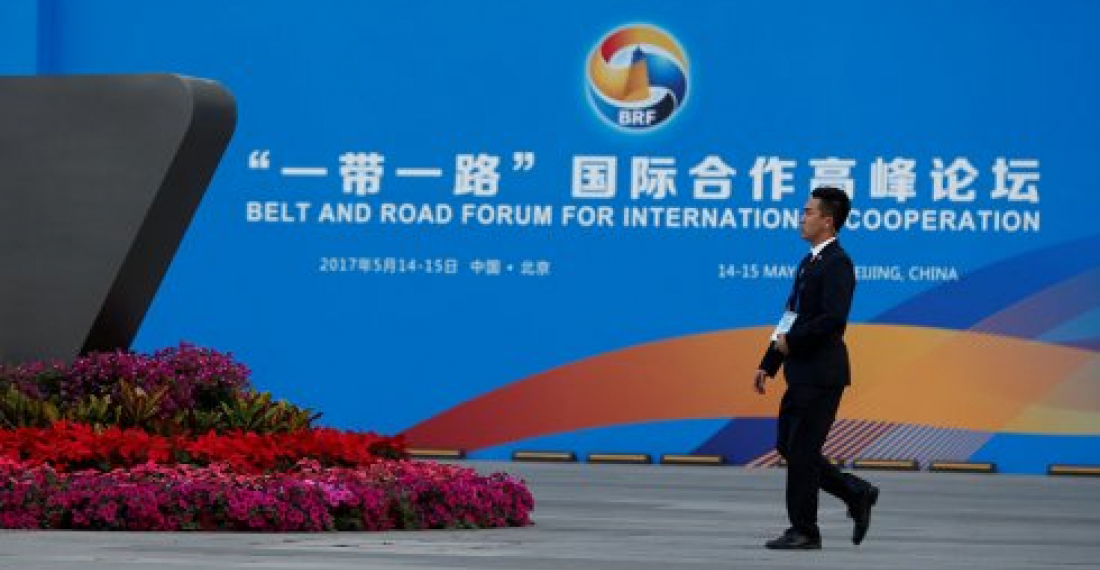This is a commentary by Dr. Benyamin Poghosyan, Executive Director of the Political Science Association of Armenia
On 14-15 May 2017, 29 world leaders, including Russian President Vladimir Putin and Turkish President Erdogan, gathered in Beijing for the international forum of the "Belt and Road" initiative. The Forum was the biggest event since the launch of the 'One belt one Road" initiative put forward by Chinese President Xi Jinping in 2013. China invited countries and regions to jointly build the Silk Road Economic Belt and the 21st Century Maritime Silk Road with at least five routes of economic cooperation. Three of them are overland: Northwest, Northeast China-Central Asia-Russia-Europe-the Baltic Sea; Northwest China-Central, Western Asia-the Persian Gulf-the Mediterranean Sea; Southwest China-Indochina Peninsular-the Indian Ocean. Two are on the sea: Coastal China-the South China Sea-Strait of Malacca-the Indian Ocean-Europe; Coastal China-the South China Sea-the South Pacific. Often named as a harbinger of China taking the lead in globalization, and as another proof that economic may be shifting from the West to Asia, the initiative has raised hopes in many countries desperately in need for investments and infrastructure modernization.
The "Belt and Road" initiative may serve as a new opportunity for the South Caucasus to accentuate the region's transit role on East - West and North - South routes. Armenia, Azerbaijan and Georgia are all keen to use this initiative in fostering their economic posture. Georgia is a leader in this race, signing a free trade agreement with China on May 13, 2017 according to which 94% of Georgian goods exported to China, including wine, nuts, honey, mineral water, vegetables, fruits, fish, and other sea products, will be free from any import taxes, Later in 2017, Georgia plans to start the construction of the Anaklia deep water port. Once finished, the new port will be Georgia's largest - dwarfing the existing ports in the Black Sea cities of Poti and Batumi and will receive ships much larger than the 1,500 Twenty-foot Equivalent Unit (TEU) ships that are currently handled at Poti. During the first phase of the operation, scheduled to begin in 2020, the port will be able to handle 900,000 TEU annually - 50 percent more than Poti's capacity. Georgia intends to include Anaklia in the "Belt and Road" project, using it as a transit hub to export Chinese products to Europe received through Kazakhstan and Azerbaijan via the Caspian Sea.
As for Azerbaijan, it actively pushes forward the North - South corridor which will connect the railways of Iran and Russia through Azerbaijan, and may become an alternative way for transporting goods from India and the Persian Gulf states to Northern Europe. The trilateral Azerbaijan - Iran - Russia summit held in Baku in August 2016 emphasized the importance of the project. The necessity to accelerate the construction of the Iran - Azerbaijan railway to enable the launch of the corridor was underlined during Azerbaijani President Aliyev visit to Tehran in March 2017. The possible inclusion of this project into the Chinese initiative may significantly boost Azerbaijani position as a transit state.
The "Belt & Road" initiative may create new opportunities for Armenia too. The landlocked country, with "no war no peace" relations with Azerbaijan, and closed borders with Turkey, desperately needs new transport routes to enhance its economic posture. Currently, Armenia has only two routes connecting it to the outside world - one through Georgia and another through Iran. The problem for Armenia, however, is the lack of railway connections. The Soviet era Armenia - Iran railway passes through Nakhijevan and has been closed since the collapse of the Soviet Union due to the Karabakh conflict. The railroad connection with Russia passes through Azerbaijan, and is therefore out of use for the same reason. An alternative railway to Russia through Georgia traverses Abkhazia, and despite all efforts by Armenia to foster the possible opening of the Abkhazian route little has been changed due to the strained Russia - Georgia relations over the status of Abkhazia. Thus, Armenia has a railway connection only towards Tbilisi and the Georgian Black Sea ports. The only highway connecting Armenia to Russia via Georgia is not reliable during winter due to the bad weather.
Two new transportation projects under discussion may change the status quo for Armenia. The first program is the transport corridor Persian Gulf - Black sea, which will start from the Iranian port of Bandar Abbas, and via Armenia and the Georgian Black Sea ports reach Bulgaria and possibly Ukraine. This route will enable an alternative corridor for Indian and Persian Gulf countries exports towards Europe. Since 2012 the "North - South" highway is under construction in Armenia which will link the Georgian-Armenian and Armenian-Iranian borders, and is perceived as essential for Armenia to be included in the Persian Gulf - Black Sea transportation corridor. The second project is the construction of a new Armenia - Iran railroad circumventing Nakhijevan. Taking into account the economic difficulties faced by Armenia, the country clearly needs foreign investments for boosting both projects, and "Belt & Road" initiative may be one of the sources. Possible Chinese involvement in transportation projects in Armenia was discussed during President Serzh Sargsyan visit to China in March 2015, and some preliminary agreements were reached. Taking into account the geopolitical challenges faced by Armenia, the launch of the new transport routes has a vital importance for Armenia, and the new Chinese initiatives may play a key role, significantly changing the status quo in the South Caucasus.
source: Dr. Benyamin Poghosyan is Executive Director of the Political Science Association of Armenia. He contributed this commentary to commonspace.eu






